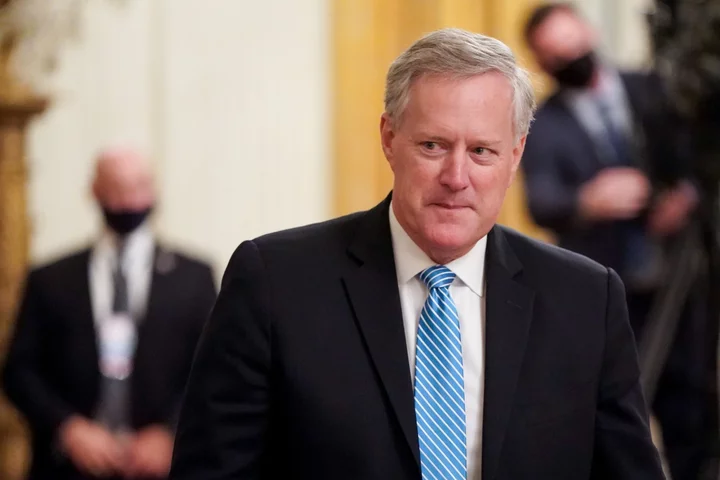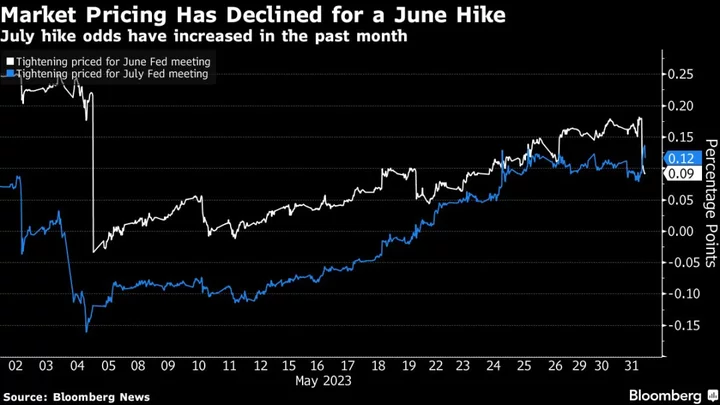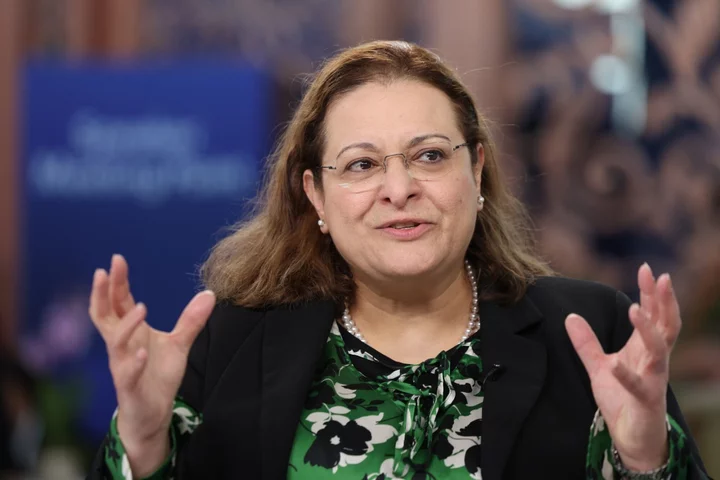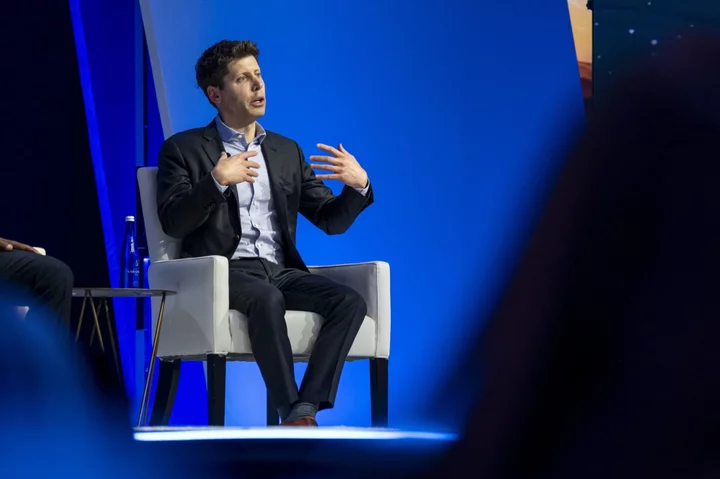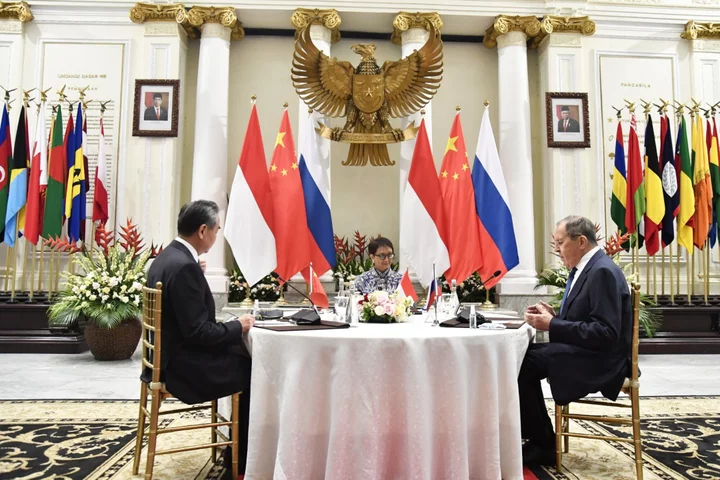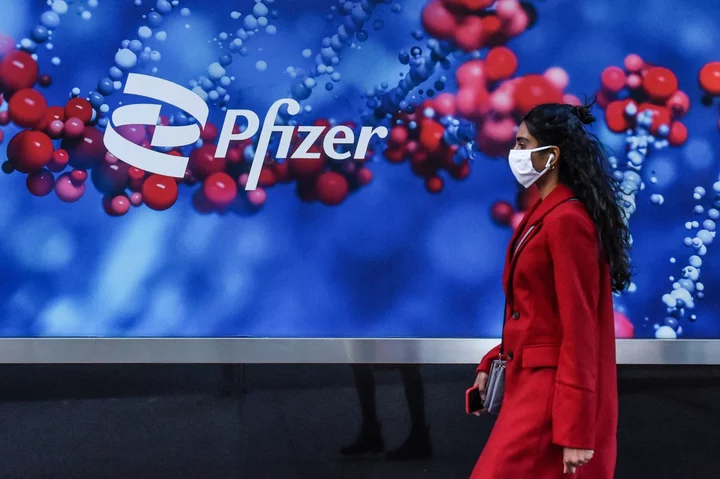Fulton County District Attorney Fani Willis ventured where US Justice Department Special Counsel John “Jack” Smith chose not to go: She not only charged Donald Trump but also 18 of his allies over efforts to overturn results of the 2020 election.
Trump’s former lawyer Rudy Giuliani, his White House Chief of Staff Mark Meadows and ex-Assistant Attorney General Jeffrey Clark were among the former president’s aides and associates indicted in Georgia on Monday.
Former New York City Mayor Giuliani, 79, was charged with racketeering and conspiracy, a stunning fall for the former federal prosecutor.
Meadows, 64, a leading conservative voice in Congress before joining the White House, is charged with racketeering and soliciting a public official to violate their oath. A mysterious figure lately, he’s been relatively quiet while both federal and state prosecutors investigated efforts to overturn Joe Biden’s presidential election in swing states. Some Trump loyalists have speculated that Meadows is cooperating with law enforcement, but there’s been no confirmation of that so far.
The other key defendants in Georgia include a slew of conservative attorneys who advised Trump’s campaign and helped his efforts to overturn election results, such as John Eastman, Kenneth Chesebro, and Sidney Powell. David Shafer, the former chair of the Georgia Republican party, was also indicted.
Attorneys for Meadows, Eastman and Clark did not respond to requests for comment. Powell didn’t respond to emails. Chesebro’s attorney said his client’s actions related to his work as a Trump campaign attorney. An attorney for Shafer said he was innocent of the charges.
“This is an affront to American Democracy and does permanent, irrevocable harm to our justice system,” Giuliani said in a statement after the indictment. “The real criminals here are the people who have brought this case forward both directly and indirectly.”
Here’s a rundown of key Trump allies indicted:
Rudy Giuliani
Like Trump, Giuliani faces charges brought under Georgia’s version of the federal Racketeering Influenced and Corrupt Organizations Act. Giuliani successfully used the federal law to lock up mob bosses when he served as a hard-charging US Attorney for the Southern District of New York in the 1980s, while also taking on Wall Street scammers and corrupt politicians.
Giuliani’s leadership after the Sept. 11, 2001, terrorist attacks against New York while he was mayor drew international praise, including recognition as “Man of the Year” by Time Magazine. He unsuccessfully sought the Republican presidential nomination in 2008.
But his reputation suffered when he joined Trump’s legal team and became a zealous advocate for discredited conspiracy theories about the election loss in 2020. His law license was suspended in New York State and in the District of Columbia, where he’s facing disbarment proceedings.
During a Dec. 3, 2020, hearing at the Georgia statehouse, Giuliani told lawmakers “there is more than ample evidence to conclude that this election was a sham.” Giuliani also falsely accused Fulton County election workers of rigging the election results; he recently conceded defamation claims in a civil suit brought by the election workers.
He said the alleged corruption warranted rejecting the Electoral College representatives selected by the state’s voters, and instead backed an alternative slate of Trump supporters.
In fact, probes by the FBI, Justice Department and Georgia Bureau of Investigation rejected the claims, as did a televised congressional inquiry of the Jan. 6, 2021, attack on the US Capitol.
Mark Meadows
Meadows’ fall is also stunning. Former chairman of the House Freedom Caucus when he represented a North Carolina district, Meadows played a key role in driving former GOP House Speaker John Boehner to retire from Congress in 2015.
Meadows remained a top ally of Trump at the Capitol. In March 2020, Trump named Meadows his White House chief of staff, replacing Mick Mulvaney, and he became the former president’s right-hand man.
Meadows arranged and participated in the infamous Jan. 2, 2021, call in which Trump asked Georgia Secretary of State Brad Raffensperger to “find 11,780” votes, and also suggested that Raffensperger could be criminally prosecuted if he didn’t help overturn the 2020 election.
Meadows can be heard in recording of the call expressing hope they “can find some kind of agreement” and “find a path forward that’s less litigious.” Meadows also asked for state election data.
Before that call, Meadows visited the Cobb County Civic Center to observe the audit of absentee ballot signatures. But he was prevented from entering the room where the audit was being conducted. He met with Raffensperger’s lead elections investigator, Frances Watson. The next day, Trump called Watson, saying Meadows had told him to do so. Trump urged Watson to find “dishonesty” to help overturn the state’s election results.
Meadows also was involved in forwarding suggestions to Justice Department officials about fraudulent election activity in Georgia claimed by Giuliani and others tied to Trump.
John Eastman
Eastman, a conservative attorney, became a close adviser to Trump in the weeks following the election. He drafted two memos laying out options for Pence to declare Trump the victor or delay Congress certifying the 2020 results, citing the existence of so-called alternate slates of pro-Trump electors in battleground states that Biden won.
Eastman was indicted on charges including urging a public official to violate their oath, conspiracy to impersonate a public officer, forgery and filing false documents.
Former White House lawyers later told the Jan. 6 committee that they strongly pushed back on Eastman’s theories — “completely crazy,” in the words of one official. The legal underpinnings of his memos were widely panned by experts across the political spectrum once they became public. A retired federal appeals judge testified that adoption of his theories would have triggered a “constitutional crisis.”
When Congress met on Jan. 6, 2021, Pence rebuffed pressure from Trump to interfere in any of the ways that Eastman had proposed.
A federal judge in California previously found that Eastman and Trump “more likely than not” had illegally conspired to obstruct Congress. The Jan. 6 committee referred both men to the Justice Department for possible criminal charges. In January, state bar regulators in California filed a complaint seeking to strip Eastman of his law license, accusing him of violating attorney practice rules. Eastman has denied wrongdoing.
Jeffrey Clark
Clark, who oversaw environmental and natural resources matters at the Justice Department under Trump, had proposed sending a letter to lawmakers in Georgia and other states encouraging them to delay certification of election results.
He also recommended announcing the Justice Department was investigating allegations of voter fraud, despite the lack of evidence supporting that claim. Both proposals were rejected by Justice Department senior leadership.
He was indicted on one count each of racketeering and making false statements.
Trump had considered installing Clark as acting attorney general, according to testimony provided to the congressional committee. Top department officials threatened to resign en masse if Trump went through with that plan, and it never happened.
Sidney Powell
Former Trump campaign attorney Powell was an architect of the vast conspiracy theory that a voting-machine company rigged the 2020 presidential election.
Powell was charged with conspiracy to commit election fraud and conspiracy to commit computer theft among other crimes.
Powell for a time worked closely with Trump, Giuliani and others at the White House to craft a plan to block the transition of power to Biden, including by seizing voting machines for a partisan investigation.
Powell didn’t appear when she was subpoenaed by Willis. She also played a key role in making arrangements for a forensic data firm to access election equipment in several states, including copying sensitive voter information from a server in Coffee County, Georgia, prosecutors allege.
Powell once served as an Assistant US Attorney in the Western District of Texas.
Kenneth Chesebro
Chesebro, a lawyer in the Trump 2020 campaign orbit, was involved in drawing up fake presidential elector slates in Georgia and elsewhere. In addition to racketeering, he was indicted for conspiracies to commit fraud and forgery.
He authored a series of strategy memos seen as among the earliest promotions of the false legal theory that Pence could, by virtue of those fake slates, declare Electoral College results from multiple states in dispute.
Chesebro allegedly worked directly with top Georgia Republicans, including then-party Chair Shafer, to have that state’s 16 alternate electors meet at the State Capitol on Dec. 14, 2020, and cast Electoral College votes in favor of Trump. He is described as having provided templated documents for use during that meeting.
His attorney, Scott Grubman, said in a statement Tuesday that Chesebro was asked by the Trump campaign to provide advice on issues related to constitutional and election law. “Each of the alleged ‘overt acts’ that are attributed to Mr. Chesebro relate to his work as an attorney,” he said, adding that his client never went to Georgia on behalf of the campaign or was privy to private communications of others in the indictment.
David Shafer
Shafer was charged with conspiracy to impersonate a public officer and first-degree forgery. In November, a state court judge ruled that his role in the fake electors’ strategy was so central that he could not be represented by the same attorneys representing 10 other “alternate” electors.
Shafer, who was a longtime state senator and former Senate president pro tempore before becoming the state GOP head, was one the most prominent voices endorsing Trump’s stolen election claims.
On Dec. 14, 2021, he assembled the “alternate” electors in a meeting room a floor below where actual electors were casting votes. He later said the slate was needed to preserve the viability of Trump’s lawsuit against the state. Georgia’s alternate list was not marked as provisional when presented to the National Archives and Congress.
Shafer announced in February that he would not seek a third term as chairman of the state GOP. Law firms representing Shafer, Gillen & Lake and Pierson Law, said in a statement that his conduct regarding the election “was lawful, appropriate and specifically authorized” under law.
--With assistance from Erik Larson and David Voreacos.
(Updates with Shafer attorney’s comments and chart.)
Author: Billy House, Margaret Newkirk and Zoe Tillman

